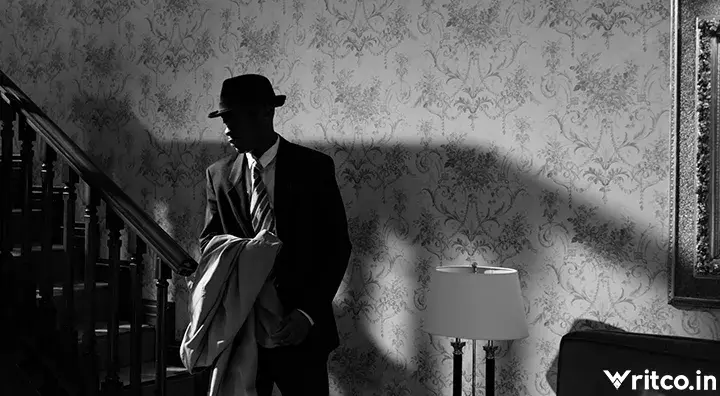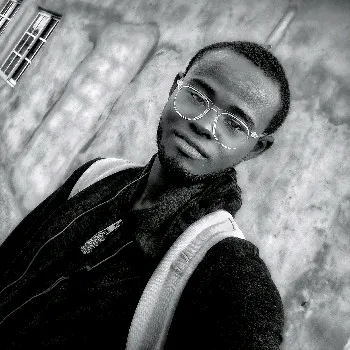Dangerous Days Chapter 06
Months afterward, Clayton Spencer, looking back, realized that the night of the dinner at the Chris Valentines marked the beginning of a new epoch for him. Yet he never quite understood what it was that had caused the change. All that was clear was that in retrospect he always commenced with that evening, when he was trying to trace his own course through the months that followed, with their various changes, to the momentous ones of the following Summer.
Everything pertaining to the dinner, save the food, stood out with odd distinctness. Natalie's silence during the drive, broken only by his few questions and her brief replies. Had the place looked well? Very. And was the planting going on all right? She supposed so. He had hesitated, rather discouraged. Then:
"I don't want to spoil your pleasure in the place, Natalie—" he had said, rather awkwardly. "After all, you will be there
more than I shall. You'd better have it the way you like it."
She had appeared mollified at that and had relaxed somewhat. He fancied that the silence that followed was no longer resentful, that she was busily planning. But when they had almost reached the house she turned to him.
"Please don't talk war all evening, Clay," she said. "I'm so ghastly sick of it."
"All right," he agreed amiably. "Of course I can't prevent the others doing it."
"It's generally you who lead up to it. Ever since you came
back you've bored everybody to death with it."
"Sorry," he said, rather stiffly. "I'll be careful."
He had a wretched feeling that she was probably right. He had come back so full of new impressions that he had probably overflowed with them. It was a very formal, extremely tall and reticent Clayton Spencer who greeted Audrey that night.
Afterward he remembered that Audrey was not quite her usual frivolous self that evening. But perhaps that was only in retrospect, in view of what he learned later. She was very daringly dressed, as usual, wearing a very low gown and a long chain and ear-rings of black opals, and as usual all the men in the room were grouped around her.
"Thank heaven for one dignified man," she exclaimed, looking up at him. "Clayton, you do give tone to my parties."
It was not until they went in to dinner that he missed Chris. He heard Audrey giving his excuses.
"He's been called out of town," she said. "Clay, you're to have his place. And the flowers are low, so I can look across and admire you."
There were a dozen guests, and things moved rapidly. Audrey's dinners were always hilarious. And Audrey herself, Clayton perceived from his place of vantage, was flirting almost riotously with the man on her left. She had two high spots of color in her cheeks, and Clayton fancied—or was that in retrospect, too?—that her gayety was rather forced. Once he caught her eyes and it seemed to him that she was trying to convey something to him.
And then, of course, the talk turned to the war, and he caught a flash of irritation on Natalie's face.
"Ask the oracle," said Audrey's clear voice, "Ask Clay. He knows all there is to know."
"I didn't hear it, but I suppose it is when the war will end?" "Amazing perspicacity," some one said.
"I can only give you my own opinion. Ten years if we don't go in. Possibly four if we do."
There were clamors of dissent.
"None of them can hold out so long."
"If we go in it will end in six months."
"Nonsense! The Allies are victorious now:"
"I only gave an opinion," he protested. "One man's guess is just as good as another's. All I contend is that it is going on to a finish. The French and English are not going to stop until they have made the Hun pay in blood for what he has cost them."
"I wish I were a man," Audrey said' suddenly. "I don't see how any man with red blood in his veins can sit still, and not take a gun and try to stop it. Sometimes I think I'll cut off my hair, and go over anyhow. I've only got one accomplishment. I can shoot. I'd like to sit in a tree somewhere and pick them off. The butchers!"
There was a roar of laughter, not so much at the words as at the fierceness with which she delivered them. Clayton, however, felt that she was in earnest and liked her the better for it. He surmised, indeed, that under Audrey's affectations there might be something rather fine if...
Everything pertaining to the dinner, save the food, stood out with odd distinctness. Natalie's silence during the drive, broken only by his few questions and her brief replies. Had the place looked well? Very. And was the planting going on all right? She supposed so. He had hesitated, rather discouraged. Then:
"I don't want to spoil your pleasure in the place, Natalie—" he had said, rather awkwardly. "After all, you will be there
more than I shall. You'd better have it the way you like it."
She had appeared mollified at that and had relaxed somewhat. He fancied that the silence that followed was no longer resentful, that she was busily planning. But when they had almost reached the house she turned to him.
"Please don't talk war all evening, Clay," she said. "I'm so ghastly sick of it."
"All right," he agreed amiably. "Of course I can't prevent the others doing it."
"It's generally you who lead up to it. Ever since you came
back you've bored everybody to death with it."
"Sorry," he said, rather stiffly. "I'll be careful."
He had a wretched feeling that she was probably right. He had come back so full of new impressions that he had probably overflowed with them. It was a very formal, extremely tall and reticent Clayton Spencer who greeted Audrey that night.
Afterward he remembered that Audrey was not quite her usual frivolous self that evening. But perhaps that was only in retrospect, in view of what he learned later. She was very daringly dressed, as usual, wearing a very low gown and a long chain and ear-rings of black opals, and as usual all the men in the room were grouped around her.
"Thank heaven for one dignified man," she exclaimed, looking up at him. "Clayton, you do give tone to my parties."
It was not until they went in to dinner that he missed Chris. He heard Audrey giving his excuses.
"He's been called out of town," she said. "Clay, you're to have his place. And the flowers are low, so I can look across and admire you."
There were a dozen guests, and things moved rapidly. Audrey's dinners were always hilarious. And Audrey herself, Clayton perceived from his place of vantage, was flirting almost riotously with the man on her left. She had two high spots of color in her cheeks, and Clayton fancied—or was that in retrospect, too?—that her gayety was rather forced. Once he caught her eyes and it seemed to him that she was trying to convey something to him.
And then, of course, the talk turned to the war, and he caught a flash of irritation on Natalie's face.
"Ask the oracle," said Audrey's clear voice, "Ask Clay. He knows all there is to know."
"I didn't hear it, but I suppose it is when the war will end?" "Amazing perspicacity," some one said.
"I can only give you my own opinion. Ten years if we don't go in. Possibly four if we do."
There were clamors of dissent.
"None of them can hold out so long."
"If we go in it will end in six months."
"Nonsense! The Allies are victorious now:"
"I only gave an opinion," he protested. "One man's guess is just as good as another's. All I contend is that it is going on to a finish. The French and English are not going to stop until they have made the Hun pay in blood for what he has cost them."
"I wish I were a man," Audrey said' suddenly. "I don't see how any man with red blood in his veins can sit still, and not take a gun and try to stop it. Sometimes I think I'll cut off my hair, and go over anyhow. I've only got one accomplishment. I can shoot. I'd like to sit in a tree somewhere and pick them off. The butchers!"
There was a roar of laughter, not so much at the words as at the fierceness with which she delivered them. Clayton, however, felt that she was in earnest and liked her the better for it. He surmised, indeed, that under Audrey's affectations there might be something rather fine if...




